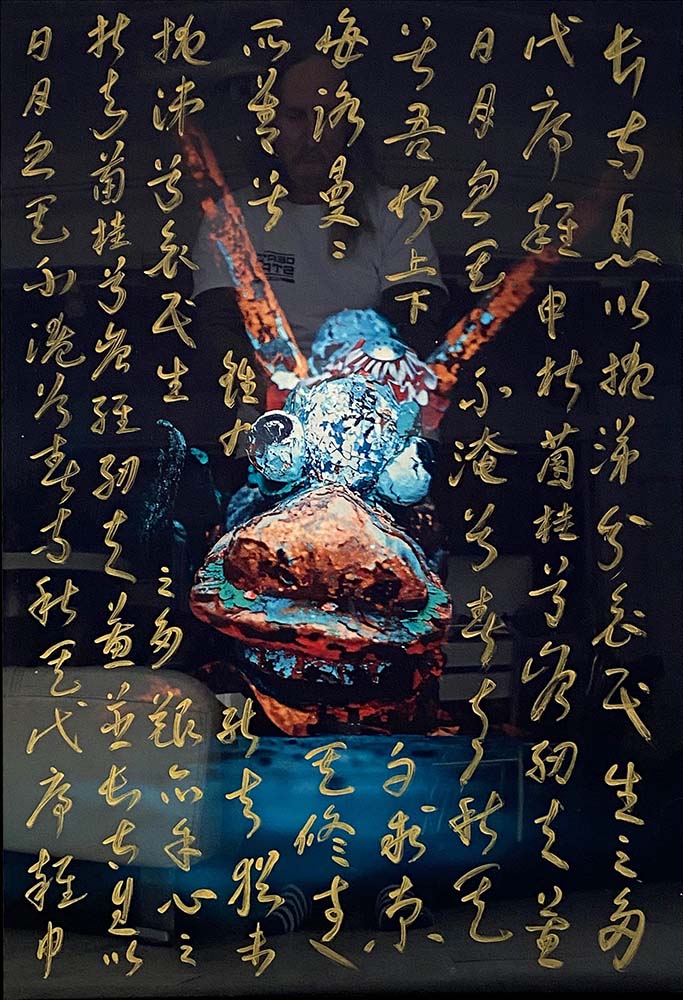Dickie Suzuki Photography
Ascending Dragon
Ascending Dragon
Couldn't load pickup availability
Rare Edition 2 of 2
Chromoluxe Metal Print
Print Size 81.5 x 122cm
Embellished with gold paint calligraphy
The dragon boat head is resting in an individual enclosure within the Fuk Tak Temple complex in Shau Kei Wan. Dragon boat heads are considered sacred and celestial beings hence the ceremony around the dotting of the eyes preceding Dragon Boat race day, also leading to this example being dutifully cared for during its pass from this plain to the next.
The origins of the Dragon Boat Festival can be found in several stories. The most famous are about Qu Yuan, China’s first patriotic writer and Wu Zixu, a once-loyal advisor to the King Fuchai.
Qu Yuan was a Minister in one of the Warring State governments, Chu. He was slandered by jealous government officials and banished by the King.
Out of disappointment in the Chu Monarch, he drowned himself into the Miluo River. He was very popular with the common people, who rushed to the water and tried to recover his body. They also scattered rice into the water to feed the fish, to prevent them from eating Qu Yuan's body, which is one of the origins of Zongzi, the traditional rice dish eaten to this day to remember him.
In commemoration of Qu Yuan, people hold dragon boat races yearly on the day of his death. Before Qu Yuan waded in the Miluo River and drowned himself, he wrote a famous lyrical poem
离骚 Li Sao (“Sorrow in Estrangement”).
Poem hand inscribed Calligraphy in Gold Ink by Grandmaster Tso:
Cassia and pepper of the mountain-side , with melilotus white in clusters vied.
杂申椒与菌桂兮,岂维纫夫蕙芷!
The way was long, and wrapped in gloom did seem, as I urged on to seek my vanished dream.
路漫漫其修远兮,吾将上下而求索。
Long did I sigh and wipe away my tears, to see my people bowed by griefs and fears.
长太息以掩涕兮,哀民生之多艰。
But since my heart did love such purity, I’d not regret a thousand deaths to die.
亦余心之所善兮,虽九死其犹未悔。
Without delay the sun and moon sped fast, in swift succession spring and autumn passed; 日月忽其不淹兮,春与秋其代序。
Share


